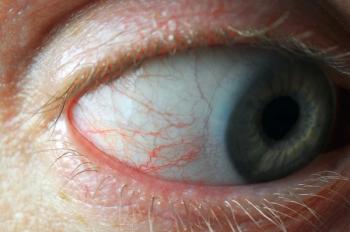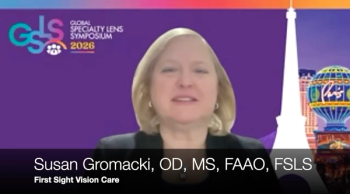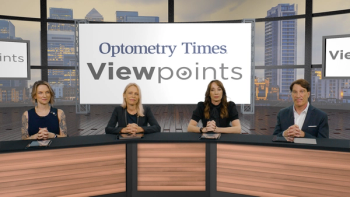
CIME 2024: The latest in refractive surgery, IOL technology, genetic research, and more
Arjan Hura, MD, gives an overview on a captivating retina panel and other enticing items at the CIME 2024 meeting.
Arjan Hura, MD, cochair of CIME, details his and Neda Shamie's, MD, multiple presentations on LASIK, ICLs, IOLs, refractive surgery, and more for this year's Controversies in Modern Eye Care 2024. He also notes captivating retina panel and significant increase in virtual attendance for the meeting.
Video Transcript
Editor’s note - The following transcript has been lightly edited for clarity.
Arjan Hura, MD:
Good morning everyone and a warm welcome from sunny Los Angeles. I'm here at the Controversies in Modern Eye Care 2024 symposium. My name is Arjan Hura, I'm a refractive cataract and anterior segment surgeon at the Maloney-Shamie Vision Institute in Los Angeles, California. I'm stepping out between sessions here. I just wanted to give a brief recap on 1 of the plenary sessions I was involved with. Both myself and Dr. Neda Shamie gave a talk this morning on the spectrum of refractive surgery, heavily focusing on what modern LASIK outcomes are like, the ICL, the phakic IOL, the technology as a whole, who's a good candidate for it, what are the right indications, what the outcomes are like, and how you assess post operative patient visits, whether that's IOP, vision vault, we went into the details of all of that. We also covered current generation and next generation lenticular extraction and why refractive surgery is so exciting and what technological advancements we're looking to see in the next 2, 5, and even 10 years out. So it was a touch on all modern refractive surgery, the latest in technology offerings, and also our real world patient data that we see here in Los Angeles, every year over 5 years and over 10 years. So it's something I was really excited about. I just exited a retina session, which was maybe the most engaging retina panel I have had the privilege of being audience to in the past couple of years. We had Dr. Christopher Riemann, he's a vitreoretinal specialist at the Cincinnati Eye Institute, Dr. Mike Javaheri, who's local here in Los Angeles, and Dr. Carolyn Majcher, who's in Oklahoma, and it was just a fantastic discussion on retinal care, specifically collaborative care between ophthalmology and optometry, a wide ranging discussion on all variants of anti-VEGF agents, as well as stored agents as well, in an ethical and real world book, and how does FDA clinical data differ from real world patient data? How do complications arise? How are those addressed and so I thought it was wide ranging and just fantastic. It's the first time I've seen an audience completely riveted and engaged for the entire hour of a retina talk. And I'm thrilled for part 2 that's coming after lunch. So for those of you turning in virtually, I think there's about 1200 of you, and for the hundreds that we have are in person, thank you so much for spending your Saturday with us. If you're interested in hearing more about this, the talks will go live at some point in the next few months. But we hope to see all of you here in person in Los Angeles in 2025.
So this year, we hit record breaking attendance, you know, pre-pandemic in-person, we're seeing 3 to 400 people. Then the meeting went virtual and we were seeing maybe about 2, 300 in person but 7 800 virtual. This year the virtual attendance skyrocketed to 1200, 1300. We're seeing people even finishing their clinics locally here and now coming to the venue. So we couldn't be more thrilled and I just think when you have a lot of people who are passionate about what they do on a day to day basis all together and you get a lot of those people together, you just get great conversations, great discussions up on stage. So I'm very excited for the rest of the day. We're just getting started.
My hope is that this meeting encompassing retina, glaucoma, ocular plastics, cataract refractive anterior segment, offers a look at the latest updates, whether that's in genetic research, IOL technology, laser technology with refractive surgery, the latest drugs used in the world of thyroid eye disease, my hope is that we have the latest clinical updates here present for you guys. We have latest technological advancements being discussed as well, but it's in the title of the meeting: Controversies in Modern Eye Care and so we're not shying away from controversies. There's pros and cons to everything. Every surgery has risks and benefits and I hope that people walk away from this feeling enriched, like they have a better understanding of what the latest offerings are for patients. Because ultimately, the better we all understand what's going on at any given moment in time when it comes to clinical care, the better we're going to be able to educate and talk to our patients. And I think this meeting is very unique in that regard. We don't shy away from controversy. There's discussion between the audience and people on stage. There's people tuning in virtually submitting questions. There's no stone left unturned. Any questions are being addressed. So I just hope this provides a rich and meaningful look at what's up and coming in ophthalmology and optometry, a glimpse at how collaborative eye care truly takes place, and hopefully just a marker every year where people want to come back year on year end because they know they're really getting good material and value out in the meeting.
Newsletter
Want more insights like this? Subscribe to Optometry Times and get clinical pearls and practice tips delivered straight to your inbox.





























